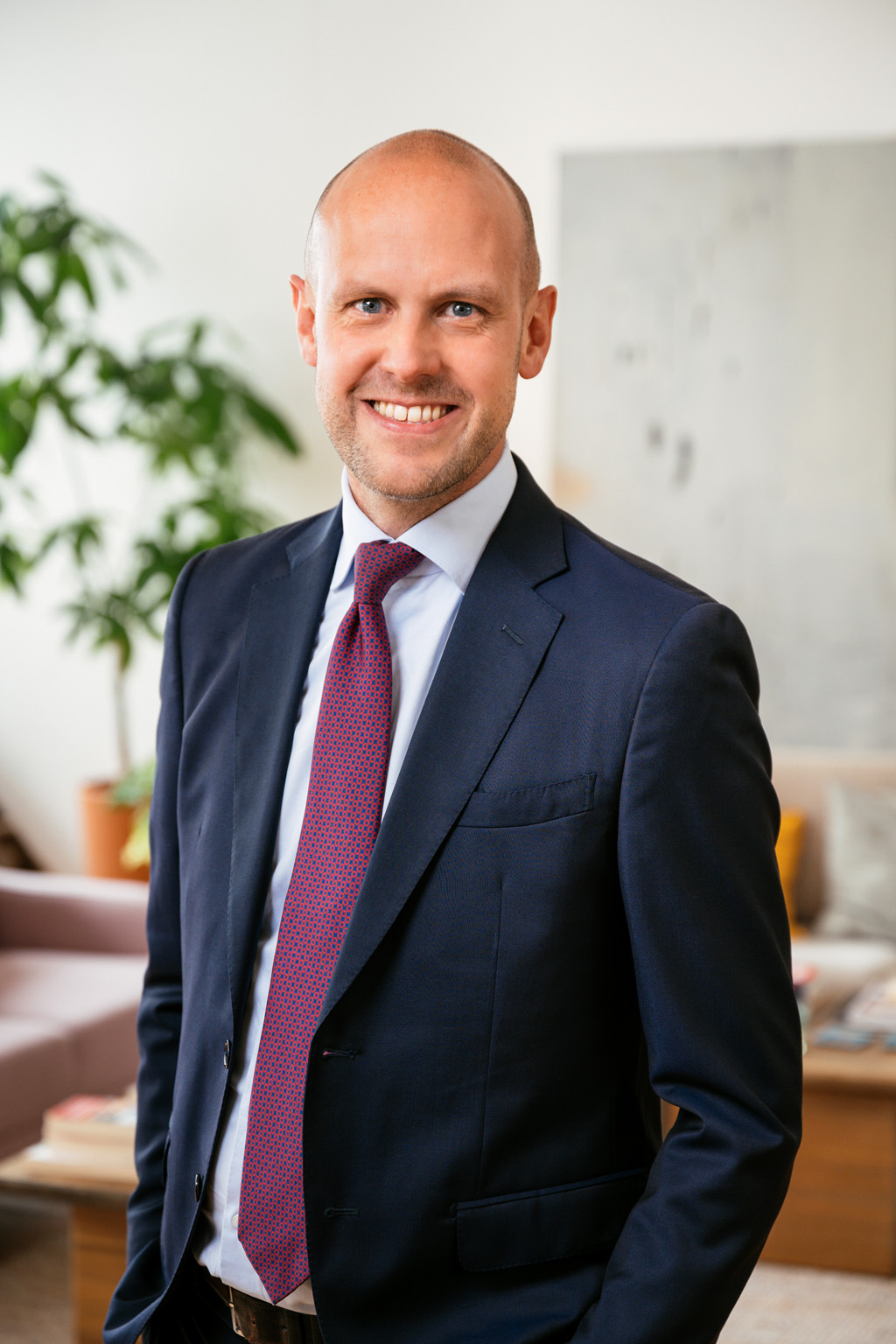Anders Junker-Nilsson is a Counsel at Gaillard Banifatemi Shelbaya Disputes.
How did you get into law and dispute resolution?
I have always been fascinated by the structure and workings of society and this led me to a career in law. During my legal studies, I found various aspects of the legal system intriguing, but it was dispute resolution that particularly captivated my attention. I was drawn to its dynamic, confrontational nature and the idea of facing an opponent and striving to win.
Initially, my focus in dispute resolution was on litigation. This interest gradually shifted towards arbitration. This transition was not immediate, partly because arbitration isn’t usually a primary area of focus in one’s studies. The shift came during a year spent in Vancouver, where I attended a course led by the renowned arbitrator Henry Alvarez. This experience provided my first thorough exposure to international arbitration and that is how I started to go into that direction.
What did you do after graduation?
At the start of my professional journey, I served as a clerk at the district court in Stockholm. In Sweden, it’s typical for aspiring dispute resolution professionals to start their careers with court service. My role as a clerk involved assisting judges and making decisions on minor criminal and civil cases. This two-year tenure offered me invaluable training in civil procedure. After completing my service at the court, I transitioned to a Stockholm-based law firm, where I specialized in arbitration and litigation.
How did your experience from Sweden help you develop as an arbitration lawyer?
Certainly, there are various paths to growth and learning in international arbitration. Personally, I found it immensely beneficial to start my career and spend a number of years within my home jurisdiction. Sweden has a rich tradition of handling significant arbitrations and working in a Swedish law firm afforded me opportunities to participate in such substantial cases. Equally important, practicing in Sweden allowed me to manage and be directly accountable for several smaller-scale commercial cases where I practically managed proceedings independently. This was an invaluable experience that greatly contributed to my professional growth. Today, this background is also instrumental in several ways. For example, it frequently comes into play when I represent clients in arbitrations related to Sweden or arbitration-related court actions within the country.
How did you get to Gaillard Banifatemi Shelbaya Disputes?
After several years practicing law in Stockholm, my wife and I made a decision to move to Frankfurt, her home country being Germany. It was during this new chapter that I applied to join Emmanuel and Yas’ arbitration team at Shearman & Sterling. My desire to join Emmanuel and Yas was influenced by my familiarity with their exceptional reputation and their unique approach to practicing law. Later on, it was only natural for me to join Gaillard Banifatemi Shelbaya Disputes when Emmanuel and Yas decided to establish their own firm.
How did you know about their approach from outside?
Emmanuel was a towering figure in the world of international arbitration, known for his groundbreaking work. The team he created with Yas was exceptional. It was – and still is – composed of lawyers from a great variety of nationalities and legal backgrounds, and they operated on a global scale, unconstrained by the usual jurisdictional or geographical limits. This approach resonated with me as it aligned with my professional experiences and goals.
You started by saying that you like the confrontational aspect of law. Is it something that you’re still seeking in a case?
Yes, confrontation is indeed a central aspect of the adversarial dispute resolution process. However, it is important to understand that this confrontation is essentially an exercise in critical thinking. As lawyers, our role is to rigorously confront the facts and arguments, not to engage in personal attacks against the opposing party or their representatives.
In any dispute between two parties, there is an inherent level of contention, but escalating the dispute resolution process into a confrontational one is not an end in itself. On the contrary, an important part of our role is to uphold the highest levels of professionalism regardless of how heated the underlying dispute may become.
This approach is about more than just argumentation; it is about applying an analytical mindset to effectively represent our clients’ interests while adhering to ethical standards. In doing so, we navigate the complexities of each case with a focus on reasoned debate and factual accuracy, which I believe are the hallmarks of effective legal practice.
What’s your favourite part of a case?
The initial phase of a case holds a special appeal to me for several reasons. It is the stage where we engage in thorough fact-finding to understand our client’s position and develop the case’s overall strategy. This process is particularly stimulating because it lays the groundwork for what follows: a hearing where each aspect of the case, the gathered evidence, and the facts we rely upon will be meticulously tested by the opposing party and examined by the tribunal.
In many ways, I think working on an arbitration case is similar to staging a performance in the theatre, and the initial stages of the case are akin to writing the script and selecting the props and the cast. Much like a director who shapes a screenplay for actors to enact on stage, we construct legal submissions and select witnesses and experts whose testimonies, along with counsel, will be pivotal at the hearing. This exercise involves deciding which elements to highlight, selecting pertinent documents, choosing witnesses and experts who will be of assistance to the tribunal, referencing relevant case law, and conveying our argument compellingly.
It is this combination of careful legal strategy and the art of persuasive presentation that makes the initial phase both challenging and rewarding.
Can you tell me about the work culture you have encountered at Gaillard Banifatemi Shelbaya Disputes?
The atmosphere at the firm is one that fosters creativity and actively encourages input from everyone, irrespective of their seniority. This is therefore quite different from some of the more hierarchical structures of some law firms.
We have a team that’s rich in diversity, with members from a multitude of nationalities and cultural backgrounds. This diversity is invaluable as it brings a variety of perspectives to the firm, enhancing our approach to various issues. I also particularly like that the firm is characterized by openness and a personal touch, and we form a team of professionals that genuinely enjoy collaborating with each other.
Can you share one of your best memories at Gaillard Banifatemi Shelbaya Disputes?
In a notable case that has entered the public domain, we represented Sonangol, the state-owned oil company of Angola, against Exem Energy, beneficially owned by Isabel Dos Santos, the daughter of Angola’s former president. The arbitration was conducted under Dutch law and had a seat in The Netherlands. Initially framed as a typical payment dispute and handled by another law firm, the narrative shifted dramatically when Sonangol retained our services.
Under the guidance of Emmanuel and Yas, our team adopted a – legitimately – bold strategy. We identified clear hallmarks of corruption in the transaction involving Dos Santos acquiring an indirect stake in a Portuguese listed company through illicit means, and chose to directly address these signs of corruption and to ask for the nullification of the agreement tainted by corruption.
We achieved a resounding success before a prestigious arbitral tribunal chaired by Professor Arthur Hartkamp, a former Advocate General in the Dutch Supreme Court. The tribunal not only ruled in our favor but also recognized the transaction as an instance of “grand corruption”, declaring it null and void. This verdict therefore reinstated Sonangol in a position as the sole 100% shareholder, the reinstated part of the position being worth approximately 600 million euros at the time of the award.
This was a very special victory, especially since the merits hearing took place in May 2021, shortly after Emmanuel’s passing, on a subject (namely, fight against corruption) that was dear to his heart, and whose writings on the subject we used in the arbitration. This case was also special for Emmanuel, as he felt strongly about Angola’s efforts to effectively fight corruption and return the colossal amounts of money stolen to their rightful owners and to the Angolan people. Notwithstanding the pain of Emmanuel’s loss, our team proceeded with the hearing precisely as per the original strategy, a fitting tribute to Emmanuel’s vision. The outcome was also immensely satisfying since it showcased Emmanuel’s message that international arbitration, as a system of rendering international justice, should and indeed can serve as an effective tool against corruption.
Interview by Valentine Faure, journalist

